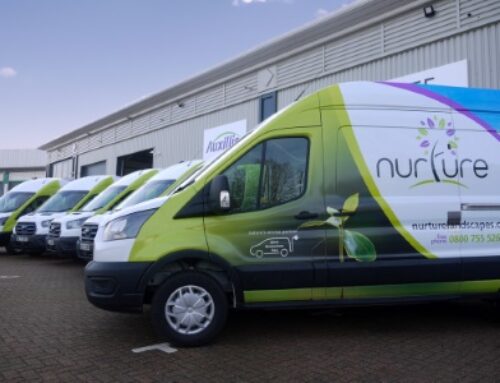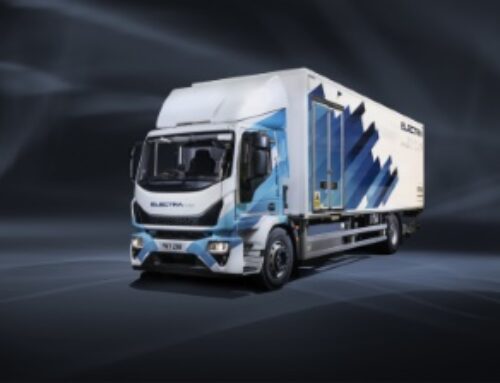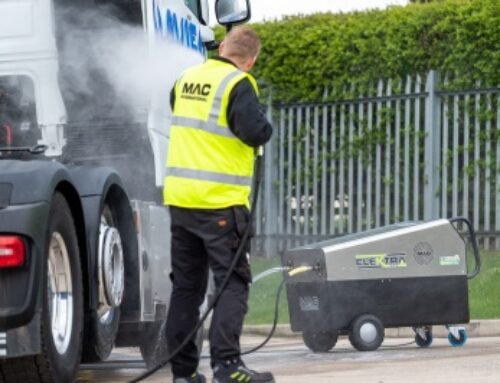How hydraulics can give van fleet efficiency a lift
 Dan Casey, of hydraulic lifting specialist Penny Hydraulics, discusses how such equipment can help boost business’ performance
Dan Casey, of hydraulic lifting specialist Penny Hydraulics, discusses how such equipment can help boost business’ performance
The main goal of any van fleet owner is to keep their vans on the road and performing to their optimum level. But, with so many things to think about— such as budget, staff, and vehicle maintenance — this can seem difficult.
If you’re trying to improve the efficiency of your van fleet while juggling all of the other things, it’s worth considering implementing hydraulic lifting equipment.
Minimising risk
While leaving it up to your van fleet operators to load and unload your vans might have been the traditional way of doing things, it can put both their body and minds under pressure. So much so, in fact, that reports from Labour Force Statistics show that an estimated 6.6 million working days were lost due to work-related musculoskeletal disorders in 2017/2018 —including those caused by manual handling.
As an employer, you have a duty of care, and a legal obligation under The Health and Safety at Work etc. Act 1974, to implement safety measures to protect your staff from any threats to their health and safety, such as repeatedly lifting heavyweight loads.
Hydraulic lifting equipment solves this problem by providing staff with a way to safely transport loads from the van to another location and vice versa, in order to remove danger from your employees.
By taking this weight off your workers, you will reduce the risk of injury that could otherwise deplete your staff numbers and negatively impact your van fleet efficiency. And, with so many types of hydraulic lifts to choose from, it’s possible to invest in one tailored to your needs.
Freeing up workers
 When your workers’ roles involve lifting heavy loads, you have to ensure that you assign enough people to each job to reduce chances of injury. However, with extremely heavy loads, this can take up a lot of your staff resources, so implementing hydraulic lifting equipment can minimise this effect.
When your workers’ roles involve lifting heavy loads, you have to ensure that you assign enough people to each job to reduce chances of injury. However, with extremely heavy loads, this can take up a lot of your staff resources, so implementing hydraulic lifting equipment can minimise this effect.
By using a vehicle-mounted lift, whether that’s a crane or a winch, you will reduce the need for excess staff. This is because they won’t be doing the lifting themselves, and instead can control the process by a button or remote control.
This can free up other members of staff who can get on with other important tasks which, in turn, will improve both productivity and efficiency in many aspects of your business processes.
Faster loading
With a whole host of hydraulic lifting equipment to choose from, you can now speed up your loading and unloading process substantially. Not only can this machinery be more secure and exert more strength than human force can, but it can also ensure that these loads are less prone to damage from drops and falls.
Additionally, hydraulic lifting equipment can quicken the process by lifting multiple things at once rather than loading and unloading everything bit by bit. This means your workers will be able to fit more work in their day, thus boosting both productivity and efficiency.
Reducing costs
We all want to lower our costs and maximise profits, and hydraulic lifting equipment is a sure way of doing both. In business, time equals money, so speeding up your process and making room for other more important tasks can make the process more cost-effective.
Additionally, implementing this equipment can mean that you won’t need to hire as many staff, which is another way you can benefit from reduced costs. While the lifting equipment may seem expensive to buy outright, it will essentially pay for itself if you take into account the former points.
Give your van fleet an efficiency boost with hydraulic lifting equipment. Not only can it streamline your loading processes, but it can also protect your employees and be more cost-effective.
This article is only designed to be a guideline to hydraulic lifting equipment. For full details and regulations, ensure you check the relevant HSE website pages.











